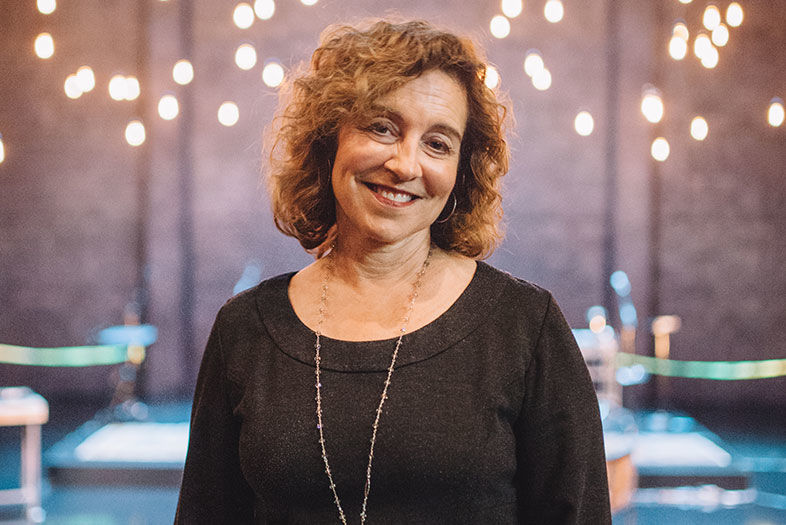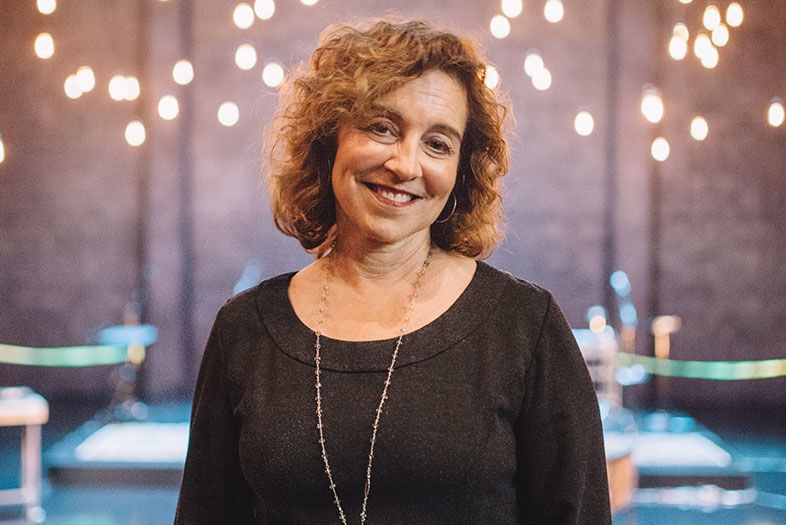Erin Meanley Glenny: You studied political science at UC San Diego and got a degree at Harvard Law School. How did you wind up in the arts?
Debby Buchholz: I was a corporate lawyer doing municipal bonds financing which, frankly, was not the most interesting work. I was very lucky to hear through a friend of a friend that the chairman of the Kennedy Center was looking for a young lawyer with an interest in the arts. I was three years out of law school, a deal closer, and I had a real interest. It was also home to the Washington National Opera and the National Symphony Orchestra, and they’d never had a lawyer who was an employee before. I developed a specialty in licensing, human resources, contract negotiation, a fair amount of collective bargaining.
EMG: In 2002, you left the Kennedy Center to be the general manager of La Jolla Playhouse for 16 years. How did you celebrate being named the first female managing director of the playhouse, last May?
DB: The night the board voted to give it to me, I sat down at the dinner table with my three girls and my husband. He said, “We have to toast Mommy, she got the job,” and he said something about me being the first woman. For my girls, it was like, What’s the big deal? Of course you were going to get it, because you were a really good general manager. That it was momentous because I was a woman, they thought it was funny I thought it was a thing at all. I thought it was great that they didn’t. It means that in 15 years, it’s not going to be a thing, because it just isn’t a lens that they filter stuff through.
EMG: How was it when you were a lawyer?
DB: I grew up in Southern California, and we’re a Brady Bunch. My dad died when I was really young. My mom was a widow with three little kids, and she married a man who was divorced and had custody of his four kids. There were seven kids and the age range from oldest to youngest was six years. Divisions in our family had nothing to do with gender, but with being the oldest. When I went to law school in Boston, they were really proud that a third of the class at that point was women. When I started interviewing with law firms, they were trotting out gender, and I’d never thought about that before. I’d never had to.
EMG: Let’s talk about that five-year plan. Do women need one?
DB: Regularly, I ask myself, “Is this what I want to be doing? Is this where I want to be?” And the answer is always yes. If for someone the answer is no, what do you do to change that? Do you need help, resources, access, training? It’s really good to have a five-year plan, and it’s really good to be prepared to deviate from it and regularly update that.
EMG: What advice would you give a woman early in her career?
DB: Figure out what is rewarding about your job that might be translatable someplace else. It may not be the industry. It might be the thing you’re doing in the place—being in human resources, managing people, being at a computer, solving problems. What are the things you find interesting and rewarding? Then grow in that so it stays interesting and rewarding, internally and intellectually and psychologically and morally and ethically—but always financially.
EMG: You’ve worked with LJP Artistic Director Christopher Ashley for 11 years. What’s he like?
DB: He wants to make you think. He listens to every perspective with interest and respect and then he makes a decision, and we all move on. He makes everyone feel like they work with him, not for him.
EMG: I’m guessing you don’t have a favorite play.
DB: I’m most excited about whatever is next. The range of what we do is really broad. There’s nothing more accessible than Margaritaville. On the other hand, getting someone to walk in the door the first time to experience a modern, rhythmic interpretation of Richard III and find what we do interesting, that’s the part we all talk about.
EMG: Playhouse staff meetings must be so interesting.
DB: They really are. Everyone has always been encouraged to go to the read-through. If you think about it from a billable house perspective, there’s no reason the bookkeeper needs to sit through the first read-through—it’s two hours at their hourly rate, but it’s an absolute given that the whole company makes the art. That’s the beauty for me about being in an organization producing new work. Everyone who’s at the playhouse, almost without fail, is excited about the fact that what they do hasn’t been done before.

Celebrating Women: Meet La Jolla Playhouse’s First Female Managing Director
Photo by Joe Wilson














